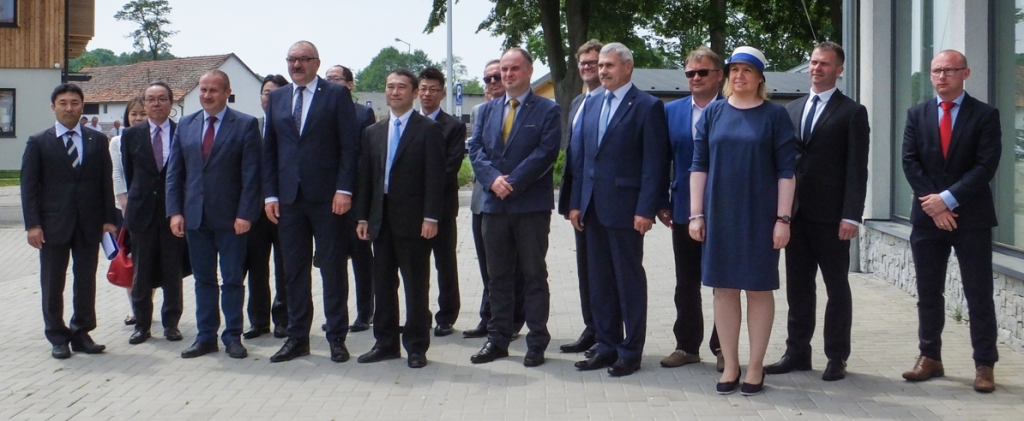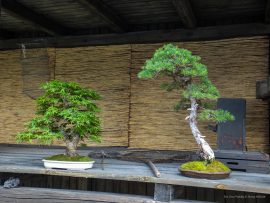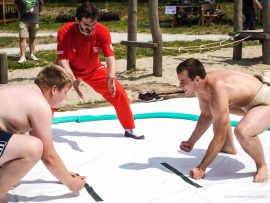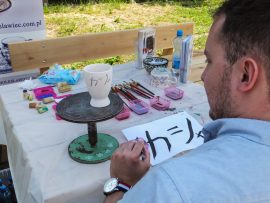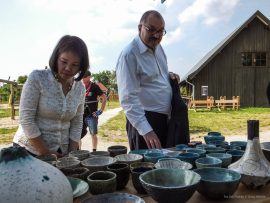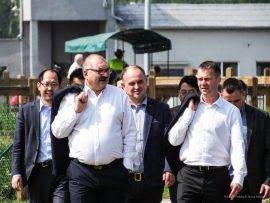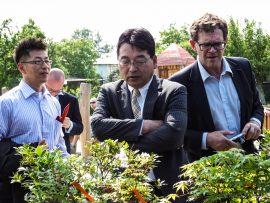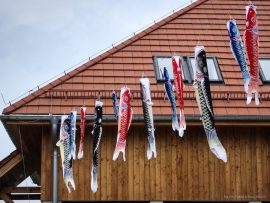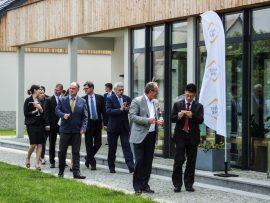Sumo wrestling demonstrations, calligraphy and leather ornamentation workshops, an exhibition of porcelain and bonsai trees – these were but a few of the attractions accompanying the Koinobori festival, which took place near the Milicz Ponds. The event was attended by Japanese investors who operate in Lower Silesia. Most of them have located their investments within the Wałbrzych Special Economic Zone “INVEST-PARK”.
Koinobori is a tradition of flying carp-shaped wind socks, which accompanies the Japanese celebrations of Children’s Day. The Milicz Ponds, a nature reserve and the largest fish pond complex in Europe, are also famous for this species of fish.
“This is an exceptionally picturesque land, which is also one of the most precious aquatic ecosystems in Europe,” said Cezary Przybylski, Marshal of Dolnośląskie Province and organizer of the event. “We would like this event to be our way of saying thank you to the Japanese investors who run and develop their companies in the region in an admirable way as well as generate jobs.”
The Koinobori festival was co-organized by the Stawy Milickie company and the Wałbrzych Special Economic Zone. As many as eleven Japanese firms are based within the WSEZ, all of them in Lower Silesia. Their capital expenditure has exceeded PLN 5 billion, which makes them the second largest national group in the zone. More than 4,200 people have found jobs thanks to their projects.
“Japanese firms were among the first foreign investors to arrive in Poland after the political transformation. They have also been present in the Wałbrzych zone practically since the moment it was established, which was almost 20 years ago,” President of the WSEZ Maciej Badora said during the meeting. “Their functioning is more than just pure business – they influence those issues that matter to the inhabitants of Lower Silesia. Japanese firms have become part and parcel of not only the economic landscape of the region, but also of the social one,” he emphasized.
The Koinobori celebration was open to everybody, children and adults alike. The visitors could discover the intricacies of origami, take part in ceramics painting and calligraphy workshops, see an exhibition of ceramics from Bolesławiec and of miniature bonsai trees as well as watch sumo wrestling shows. There was no shortage of the traditional Koinobori, i.e. colorful carp-shaped flags.
“The carp is very important both in Poland and in Japan. Legend has it that the carp’s perseverance when trying to swim up a waterfall was so impressive that it was turned into a dragon. I think that Dolnośląskie Province and the city of Milicz have shown equal perseverance in overcoming obstacles. They have gone a long way since 1989 to achieve success. They could even be called modern dragons,” concluded Satoru Takahashi, Counselor and Deputy Chief of Mission of the Japanese Embassy in Poland.
 WSSE "INVEST-PARK". Wałbrzyska Specjalna Strefa Ekonomiczna "INVEST-PARK".
WSSE "INVEST-PARK". Wałbrzyska Specjalna Strefa Ekonomiczna "INVEST-PARK". 